
Should You Quit Your Job? A Calm Mind Knows
TLDR: While advice from others can be helpful when facing a crossroad, we know our situation best first-hand and can make decisions that others may not understand. As long as we make choices with a rational and calm mind, we can trust the process and conditions to guide us.
How many of us have pondered the possibility of leaving our current job? Is it due to excessive workload, lack of progress or recognition, a misalignment with personal value, or just the thought of exploring something new?
This thought had been running through my mind for the past year, but I was held back by another question: “Are you sure? Many would’ve wanted your position. It seems foolish to let go of something good when you don’t know what comes next.”
The inner skeptic

This discouraging thought mostly stemmed from worry or fear of what others would think – of how foolish they might perceive this action, or how foolish I would seem.
The skeptic in me remained strong until something bigger shook it. Early last year, team restructuring was announced, with a stronger emphasis on delivering more efficient results, and the resignation of all overseas team members.
At first, I took these responsibilities as a challenge — after all, I had taken on growing roles over the past years.
I also believed this was what a good leader must do: to be the pillar of support for the team, especially during tough times.
Soon enough, 14-hour workdays became the norm. Days were filled with meetings to ensure ongoing operations, maintain process continuity from departing colleagues and fill vacant positions as soon as possible.
Lunch was eaten at the desk to save minutes that could be spent working, no breaks were taken to quickly cross off hands-on tasks from to-do list. Eventually, self-care routines were abandoned and the no-work-on-weekends boundary was crossed.
How do we know when it’s enough?
This was a personally challenging period, but I gritted my teeth and pushed on. Positions were filled, trainings were conducted, and frequent meetings with the new overseas team were established.
But not without a toll on body and mind – skin breakouts, weight gain, poor sleep, heart palpitations, and lack of energy for anything else.
After a few months, I realised I needed help — this wasn’t something I could manage on my own. My boss was surprised when I broke down in our catch-up call; he thought I was handling the situation quite well! He gave me a two-week break and arranged for a colleague to stand in during that time.
Reviewing boundaries
I used the time to rest, eat better, and try out a gym trial. Establishing a healthier routine helped me regain some balance.
Then, I came to a realisation: this situation wasn’t personal and it could have happened to anyone. While I couldn’t control the outcome, I can put in my best effort and allow the result to materialise.
The anxiety stemmed from the mindset that “it’s my full responsibility to keep things going at the same high standard as on normal days”. These weren’t normal days, and while it was my responsibility as the manager to keep things going, there were still things beyond my control – and I had to know where to draw the line. And for sure, I wouldn’t be able to manage the situations if I wasn’t well.
Returning to work after the two-week break, the same pressures and demands remained. Though it was clear that the world didn’t crumble without me, I knew I couldn’t return to the same routine.
I informed my boss and team that I needed a morning gym session everyday — this was my new boundary to make things work. The shift in mindset also helped to alleviate unnecessary pressure.
As the situation slowly found balance after a year, I knew deep down that I would leave the company once things stabilised. Vacant positions were filled and systems were implemented to improve operations with the new team. The turning point came one morning, during regular work planning call with a team member. A thought struck me: this is it, it’s time to leave.
Nothing extraordinary was discussed during the call, only the routine had lost the purpose for me.
Not until another team member resigned, did I realise that there is no ‘good time’ to leave. After considering practical matters — typical monthly expenses, how much saving there is, how long I can sustain myself, how I will use the time off well, and how I can manage the emotions that may arise during the time off; and having sat on my resignation letter for a few days to ensure it wasn’t an emotional decision, I formally submitted it to my boss.
It was fortunate that the remaining team members had been groomed for independence and growth. Most areas were already running smoothly without much direct involvement from me. After serving a three-month notice period to assist with the transition, I left the company.
Living with uncertainty

Without a new job or a fixed plan in place, it felt bittersweet to leave a workplace of 12 years and the people I had worked closely with. It felt liberating, yet apprehensive of what the future might hold. With body and mind care at the forefront, I’ve learnt to hold plans lightly.
Coincidentally, several opportunities to join retreats arose. I seized them and planned for extended self-practice periods.
The past 2 months have been filled with retreats, both as a participant and as a volunteer to the organising team. Providing small assistance to others on their paths has brought me joy and gratitude.
There are still moments of doubt and uncertainty, but it also gave me time for introspection and realisation. There are also moments of annoyance when friends ask if I’ve started looking for another job or what my next step is. But I’ve learnt to simply say: I don’t know yet.
I do aspire for conditions where a suitable career aligning both spiritual and material growth arises for me. But for now, I’m taking things slow and that feels alright 🙂
Wise steps:
- Be clear about our boundaries in both personal and work life, so we can make decisions with a clear mind rather than out of emotion.
- Assess practical matters, sit with the decision if needed, and trust the choice made.
- It’s okay not to know the immediate next step and to say so when asked.
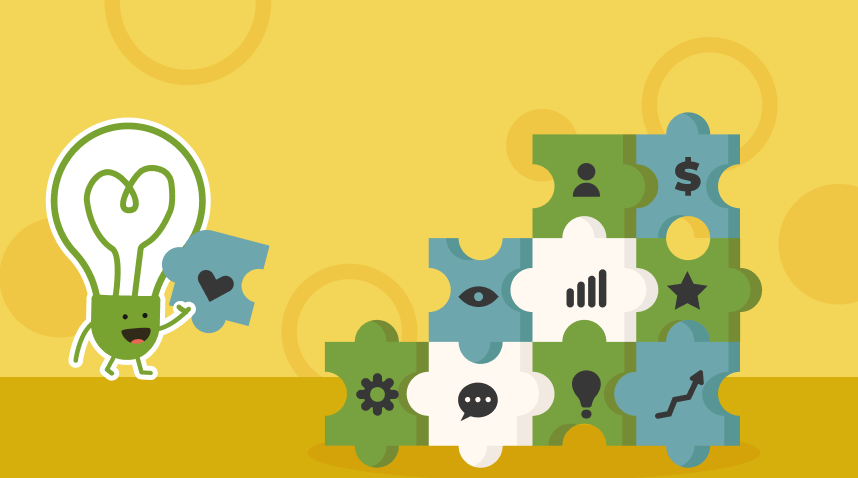
What Core Values Are You Optimising for?
Editor’s note: This is an adapted article in collaboration with Ro. Do check out Roberta’s blog of reflection and learnings.
TLDR: As we navigate our careers and choose ‘what’s next’ for us, how can we figure out the core values that matter to us? Ro explores more.
I met a distant younger cousin at a family funeral service a few weeks ago. I had last connected with her when she was a semester away from graduating with her Undergrad business degree and she was eagerly picking my brains about how to get hired and tips on interviewing well.
Enthusiasm & Jadedness

At the time, she was brimming with youthful energy, optimism, and a people-pleasing energy that made me sit back in my seat and appreciate the gumption. I wanted to bottle the zest and drip it into my morning coffee.
We were now meeting 8 years later and she is now working in a risk management division of a Major consulting firm in the city. Younger her would have been ecstatic at the notion of her future self working in a ritzy office, with a nice handbag and shoes, her hair glossy from professional salon appointments.
To my dismay, instead of being excited or passionate about her job and industry, she was jaded, unhappy about her career, and was thinking (nay, daydreaming), about changing industries and doing something “creative”. What had driven her to make the choices she had to become a working professional, only to backtrack and feel a sense of disappointment and regret?
Dukkha, unsatisfactoriness, labelled by the Buddha, was written across her face. Attachments to outcomes or how society pushes us to expect that certain jobs are perfect because of high prestige and pay to make us suffer.
Connecting with her at this different stage of our lives, allowed me to see her predicament with a ten-foot pole, with perspective. In a situation I completely related with, she had chosen security, others’ perceptions and potential comforts over her individual core values, and hadn’t given herself any opportunities to optimise her life around these values.
I felt lucky that I had kept a version of my core values alive through my mindfulness networks and constant striving for inner peace. She was feeling stuck with no other way to refill her cup and didn’t know where to start with this pivotal change.
Core Values
We need to regularly and often reflect on our fundamental beliefs and guiding principles. These are the ‘North Stars’ that guide our decision-making and behaviours. Without reflection, we can get swept up in the pressure of our networks, our parents, friends and acquaintances – and lose direction, purpose and clarity in our life choices. What are we working for? What are we contributing to?
The Buddha talked about Samma Ditthi or Right View, which encourages us to see things as they truly are. Having this at the back of our heads unblinds us to the reality that lies ahead. For everything we work towards, there is a craving with a corresponding Dukkha. We, as lay people, have to know that we need to choose a life that has manageable Dukkha and confront that reality.
Having met so many inspiring and strong-minded individuals, I can see the common thread through them is that they live their lives with dignity, boundaries and a strong sense of their own core values which are unique to each of us, even if they do evolve over time.
Identifying Your Core Values
This requires deep introspection and thoughtful consideration. So many of us don’t give ourselves the chance to discover our values, by copping out and blindly stating that we don’t know what we want. Well, here are some questions that I often use to help me identify what is important to me, and what may have changed over the years.
- What activities or experiences make me feel most fulfilled and energized?
- What qualities do I admire most in others, and why?
- What are the common themes or principles in my happiest memories?
- When have I felt the most authentic and true to myself?
- In what areas of my life do I consistently invest time, effort, and resources?
- When have I felt the most aligned with my purpose or sense of meaning?
- What legacy do I want to leave behind, and what values are essential in shaping that legacy?
- If I could only live by three to five guiding principles, what would they be?
Prioritising your Core Values
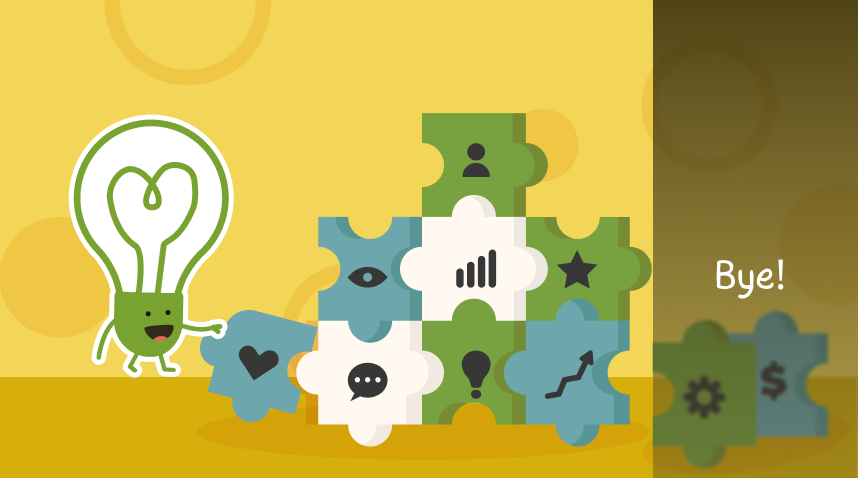
To uphold our core values in all aspects of our lives, we must make hard decisions to align our decisions with long-term goals and aspirations. This is where the disparity can occur, as we’re making choices and navigating our lives every day.
However, these moments of consideration, however difficult, will result in harmony with our choices and allow us to live a life authentic to us. Here’s what helped me to integrate my core values into my daily life:
- Goal Setting. Ensuring goals align with core values and activities that are important to you.
- Decision Making. Cross-reference decisions with your core values, to ensure they match up.
- Boundaries. Ensure you have boundaries that uphold your core values in relationships and at work.
- Evaluating and Adjusting. We don’t always get it right, and often factors outside of our control will lead us to places we need to come back from. We need to constantly adapt to these changing circumstances and stick to a regular practice of self-reflection to evaluate our current actions and core values. We can always make necessary changes to get us back aligned with our ultimate goals.
When prompted, my little cousin reflects on her decisions as a result of the pressure and expectations from her parents and her comparisons with her university cohort.
When all her friends were securing impressive, high-paying corporate jobs, it’s natural that she felt behind in life and rushed to secure her rights to brag. It’s a reminder that all that glitters is not gold, and being on the inside of the big corporate machine, my cousin realises that it’s not where she belongs.
At 27, she will have to navigate a career change with resilience and motivation, but I have no doubts that when she hones in on what really brings her alive and what kind of work she really wants, this uncertainty will all make sense as an invaluable period of learning and unlearning.
It’s a reminder to us all, that we mustn’t forget to check our internal compass. Our core values will always point us in the right direction, even when the path ahead seems uncertain.
Wise Steps:
1. Use questions to guide your introspection. You can ask yourself what activities make you feel most fulfilled and energised.
2. Analyse happy memories: Look for common themes in your happiest experiences as these themes often point to your core values.
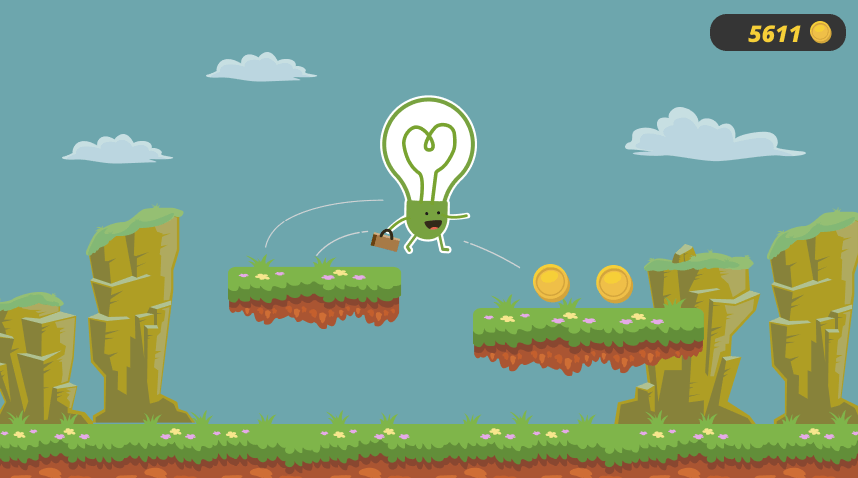
Gamify Your Job Search: How Dhamma Helped Me Navigate the Search
TLDR: Getting a job can be tedious and gut-wrenching. You are not alone. Your job search has similarities to a video game! Both have an end goal (getting a job), limited resources (time and financial pressures), and mini-bosses (rounds of interviews).
The Job Search Video Game
Treating the job search as a video game helps you see it from a different perspective. Why a video game?
Well, here are some similarities: here is the end goal (getting a job); there is time pressure (e.g., financial pressures from that home loan); there are the mini-bosses (interviews) that you need to get through; and you are constantly experimenting and changing tactics from unsuccessful tries till you succeed (get the job).
Background:
A change in management and corporate objectives resulted in a toxic work environment. I was placed on a performance improvement plan due to a disagreement with upper management.
It took me six months to get a job offer, four months of which I continued working at the company while applying and 2 months stressing without a job. Note that my experience comes from an Australian context, so feel free to adjust it to suit your situation 😊
How I played this game:
Step 1: Mapping (Understanding) the environment
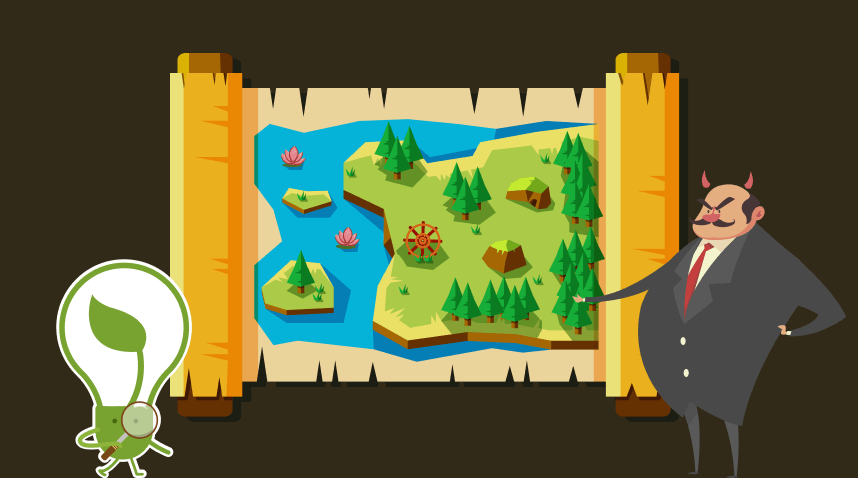
The I.T. market has been challenging, with significant layoffs from companies like Meta and Google, as well as large consulting companies like PWC and Deloitte.
This has resulted in an increased workforce supply in the tech market. To understand the lay of the land, I researched core drivers such as the average salary and relevant skill sets required for the jobs I was applying for.
I also meditated and chanted regularly to have clarity of mind, allowing me to see my situation clearly before deciding to leave the toxic work environment.
I asked myself three questions:
1) Did I want to quit because I was lazy or could not handle work pressure?
2) Was there a way the situation could be improved?
3) Was the management trying to help me improve or push me out?
When I got my answers, I set up a rough action plan and started the ball rolling.
Step 2: Check on your Gold (finances)

The general rule of thumb for spending, recommended by the Buddha, is that 1/4 should be enjoyed, 2/4 should be invested in the business, and 1/4 should be set aside against future misfortunes. (D.N. 31, Sigalovada Sutta: The Buddha’s Advice to Sigalaka)
I used part of the last component to fund this period as I searched for a job.
I discussed my financial situation with my wife, who was wholeheartedly supportive throughout this ordeal.
With my final payout from the company, I immediately paid off three months of home loans and expenses to see my finances with a clearer lens and prevent overspending.
This also gave me a clear runway for how long I had to find a job, adding a sense of time pressure.
Step 3: The Golden Resume(s)
Like a game, you collect skill points and talents along the way. I was applying for two types of jobs and had a specific tailored resume for each.
In the age of A.I., keywords are crucial, especially if recruiters are using A.I. engines to screen resumes.
I optimised my resume with ChatGPT (e.g., search: Key Skills a Technical Business Analyst should have) and added the relevant skills to my resume. I also used ChatGPT for cover letters (e.g., search: Please combine the <Paste Job Description> and <My work experience> to write me a Cover Letter in British English that fits on a page).
Note: Make sure it is in British English, and rewrite it if it is too formal or rigid.
Review your resume every 1 to 2 weeks to improve. For example, I was in the top 3 for an E.V. charging company but did not get the job.
I followed up with the Talent Acquisition team, which mentioned that I lacked data skills compared to the other two candidates. To rectify that, I started to do a Microsoft-endorsed PowerBI course and added the skills to my resume.
Step 4: The warrior monk discipline
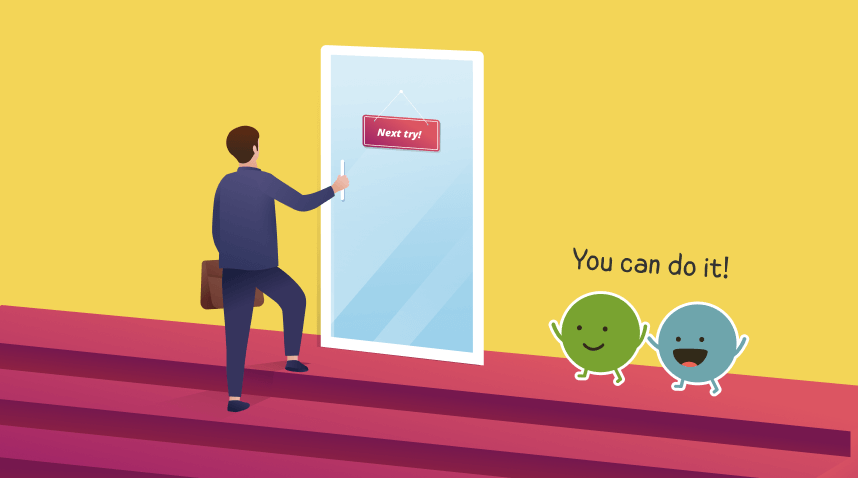
To deal with setbacks, I was fortunate to have a strong support structure. My wife was supportive and encouraged me to visit the monastery to change my environment and perspective.
Practising Caga (generosity) by gardening in the monastery and doing good deeds in daily life helped to put me in a positive mindset and lighten my mind.
My parents would send me YouTube Dhamma talks when I was unsuccessful at getting some jobs #AsianParentLove
Going to the gym 4 to 5 times a week helped to keep the endorphins flowing and maintain my motivation.
I set my own KPI of 5 to 6 job applications daily (adjust yourself accordingly, but remember, quality over quantity) and took weekends off. I was flexible but tried to stay as close to the goal as possible.
Step 5: The Bard’s Sitar
Remember to be kind to yourself!
A sitar player who had difficulty in his meditative practice asked the Buddha for advice.
The Buddha and he agreed that if the instrument were too tight, the string would snap; if it were too loose, no sound would come out. But a tuneful sound comes when it is not too tight or loose. (AN 6.55)
Getting a job is hard work, but remember to reward yourself too. If finances allow, have short trips in between. Remember that this is a period that you do not need to take leave for vacations. Silver linings, my friends! 😊
Step 6: The Network Web
Make sure you are in contact with multiple recruiters (I was working with 6). Keep in mind that they have to look at numerous resumes daily and may have a bit of a “goldfish memory: I would call or contact them weekly to stay at the top of their mind for potential opportunities.
Reach out to close friends and family to leverage their networks to connect you with potential job opportunities.
Make sure your referees are aware that someone might contact them. For example, I was blindsided when an old staff member of mine put me as a referee without informing me, and I thought it was a scam call.
Prepare your referees with a list of dot points on your projects together so they can reference it at a moment’s notice.
Step 7: It’s never GAME OVER.
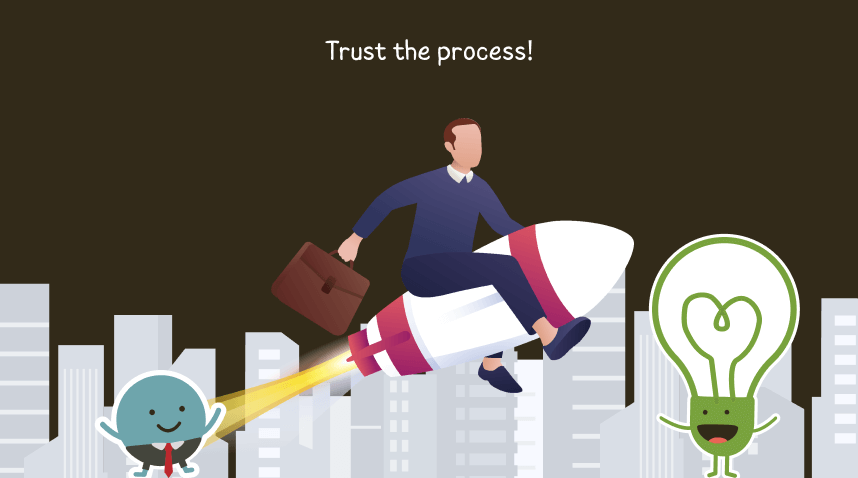
I would reach the top 2 or 3 in interviews and kick myself when I did not get the job. Getting to such a position is an indication you are almost there.
Remind yourself to trust the process and update your learnings along the way.
I finally secured a job at the same company where I was unsuccessful for another role. I kept in touch with Talent Acquisition, and he recommended me to his colleague.
A few interviews later, I got the job! Luck is where hard work and opportunity intersect. Find different ways to source opportunities. Finding a job is one of the situations where you do not take “no” as an answer.
Some Game Stats:
143 Applications
6 Recruiters
5 Interviews with different companies
Wise Steps:
- Network Cultivation: Stay in regular contact with multiple recruiters and leverage your personal network. Prepare your referees with relevant information about your shared work experiences.
- Balanced Effort: Remember the Buddha’s advice on the “middle way” – don’t be too rigid or too lax in your job search. Take time to reward yourself and maintain work-life balance.
- Financial Dharma: Apply the Buddha’s 1/4 spending rule to your finances. Create a clear financial runway to understand your job search timeframe.
- Resilience and Persistence: View each interview as progress, even if you don’t get the job. Trust the process and continually update your approach based on feedback and experiences.

The Buddhist Approach to Coping with Unemployment
TLDR: Losing one’s job is a rite of passage for modern corporate employees. Here’s how Loving-Kindness, Compassion, and Forgiveness can help us ease the pain of job loss.
Layoff news continues to shake the corporate world. Companies do this to control spending and boost profits for shareholders. News of ChatGPT taking over white-collar jobs of those made redundant instilled more fear in people’s minds.
All these remind me of one of the core teachings of Buddhism – everything is impermanent. How do we manage the fear and pain of job loss, if we find ourselves in the firing range of unemployment?
Loving-Kindness (Love) – Be kind to ourselves and others
Our sense of self is often entwined with our job titles. We prioritise our job responsibilities over ourselves. During the COVID-19 pandemic, I delayed my visit home despite the Singapore-Malaysia border re-opening. I stayed back at work because we were understaffed, and I waited for the students to finish their exams.
Is this the practice of the Boddhisattva? Putting the needs of others before myself? Is this self-care if I fail to prioritise my physical, mental, and emotional health?
One blessing of long unemployment is having more time with my family. I spent 5 weeks in Malacca – before, during, and after the 2024 Dragon Year Chinese New Year! I felt like a young kid again, on a long school holiday.
Given a choice, please choose to be kind. When we suffer, we may lash out in anger and frustration, at ourselves and others. Getting messages about job opportunities, words of concern, dinner treats, or even a simple “How are you?” from friends and ex-colleagues can be triggering when we feel anxious and depressed.
I am fortunate to have good friends who care for me. Regardless of my employment status, I can be kind and generous with my words, thoughts, and actions.
“One who refrains from causing harm by way of body, speech or mind, can be called a worthy being.” ~ Dhammapada Verse 391
Embodying the spirit and act of Loving-Kindness and Generosity does not require money.
Focusing on our careers, have we taken the time to take stock of what is important? If you are an employee, you spend time annually discussing your Performance Review with your manager. How about doing a “Review of your Life Goals”, once a year? As we age, our time with our ageing parents may be limited.
Similarly, our friends or even ourselves may struggle with health challenges – we may delay health check-ups. We will stay single if we do not prioritise time to meet potential mates. Focusing on other aspects of our lives, outside of careers, is an act of kindness to ourselves.
Compassion – Be gentle with my pain and suffering

As a counsellor, it was easy to extend compassion toward my clients. Self-compassion, it is a different story. Zen teacher, John Tarrant wrote, It would be a pity to waste a good crisis. This unfortunate job loss presents itself as a “wonderful” opportunity for me to practice self-compassion, again and again.
Self-compassion does not remove the financial pain of losing one’s job or the challenge of paying bills. But, it does reduce the sting of guilt of why I am still jobless after 10+ months and counting.
We have to be wise and prudent in managing our finances to meet our worldly needs. In the Sigalovada Sutta, the Buddha advised a young layman named Sigalaka, to divide his wealth into four parts: “One part he may enjoy at will, two parts he should put to work and the fourth part he should set aside as a reserve in times of need.”
Thankfully, as the Buddha advised, I have saved some money for rainy days. Financial planning and having an emergency fund are important.
While I have yet to master self-compassion, I realized how I have been unkind to myself. The practice of love and compassion is incomplete if we exclude ourselves.
I am reminded of a story from the book, Loving-Kindness – The Art of Revolutionary Happiness (1995) by Sharon Salzberg, a popular Western meditation teacher. Her teacher presented her with a challenge: If she were travelling with a group of friends and strangers, and if they encountered some bandits who demanded that she sacrifice one person to save the others, whom would she choose to “sacrifice”?
She found it hard to justify surrendering anyone. Not her enemy, friends, benefactors, and not even herself because then it would not be a kind act. And that is the right answer, when one’s heart is full of Loving-Kindness and Compassion, we do not exclude anyone, even ourselves.
As highlighted in the Karaniya Mettā Sutta (the Buddha’s Words on Loving-Kindness), one should cherish all living beings (which includes us naturally):
“Just as a mother would protect her son, her only son, with her own life,
So one should develop towards all beings a state of mind without boundaries.”
Karaniya Metta Sutta, Suttanipāta 1.8
Forgiveness – Let go of the guilt and blame game

We have little control over our external work circumstances. Stories of toxic bosses and colleagues, companies that prioritise profits over employees’ well-being, etc. are things that we have little control over.
However, human beings tend to seek meaning in situations. We blame ourselves for “failing” to meet certain standards, instead of accepting that we are just “unlucky” to be laid off.
This is a great opportunity to contemplate the Buddha’s 1st Noble Truth, “There is Suffering.” At one Career Talk, I heard the term – “being delulu is the only solulu” – a Gen Z phrase that means “being delusional is the solution,” in other words, you may achieve your wildest dreams if you focus on it with positive intent. I prefer the Buddha’s approach, where you see the suffering clearly for what it is. Suffering can spur us to understand its nature and the end of its cause – leading us to practice the Noble 8-fold path.
Spending time feeling guilty, blaming ourselves or others, being anxious and depressed, takes time and energy away from finding a new job! We are responsible for taking the right action to be employable again.
There is hope after a layoff and the lessons that come with it. A HOL podcast by Livia Lee – “Being laid off & the life after (Ft Livia, Former Employee @Meta)”, gave me hope and inspiration on what to do during this challenging period. You may also find this article by Livia – “9 things you can do for someone you know who got laid off recently,” on getting the help you need – such as asking for LinkedIn testimonials from ex-colleagues to be useful advice. I am glad I asked for it, and I am elated with the kind words my colleagues shared about my work.
We can also reflect on what is important at our next workplace. It might be the people, the work, or the culture. I find PJ Teh’s article – Applying Buddhist Principles at the Workplace, a useful read.
I am grateful for the wonderful people that I worked with in my past jobs. The people we work with can make a challenging workplace more bearable indeed. If we cannot find helpful people at work, we can be the ones who help others, just like how the Buddha lights the path for us.
I recalled Ajahn Brahm’s story about a person who stepped out of their car, into a pile of dog poo. Instead of bemoaning the now ruined new shoe, the person decided to take the dog poo home and add it to the compost pile to use as fertilizer for his mango tree. It is a good story of making lemonade out of lemons.
I had the good fortune of attending Ajahn Brahmali’s meditation retreat in Batam, Indonesia, in December 2023, thanks to the kindness of a benefactor who gave me his spot at the retreat. I asked Ajahn how to better cope with unemployment. Ajahn reminded me to be kind and compassionate to myself, and that it is not my fault for being unemployed.
Further reflecting on Ajahn’s words, I realised I held on to so much guilt and blamed myself for being jobless. I did my best at my job and supported my colleagues well.
However, my contract was not renewed. I am grateful for this period of unemployment. I reflected on what’s right and wrong in my life, to improve my life holistically.
The heart practices of Loving-Kindness, Compassion, and Forgiveness hold a special place in my heart. Dhamma is everywhere, and the lessons I am learning are useful for my professional and personal life. I am grateful.
Wise Steps:
- Find hobbies that make you happy. You’ve been neglecting your needs, to care for others. It is time to take care of your needs again. I re-discovered my love for writing. What is yours?
- Find support in your family and friends. They can hear you out, encourage you, or even give you financial aid to tide you over during the unemployment.
- Listen to wise elders, friends, mentors, or Sangha members. They will give you a better understanding and balanced view of what you are going through now.
Note: A special shoutout to DhammaWorks by Kinrara Metta Buddhist Society in Malaysia for offering structured workshops on incorporating Dhamma at work. I was lucky to sign up for the DhammaWorks 8 (2021) when it was offered online during the COVID-19 pandemic. The program inspired me to constantly reflect on how the Dhamma can aid us in our work life.
